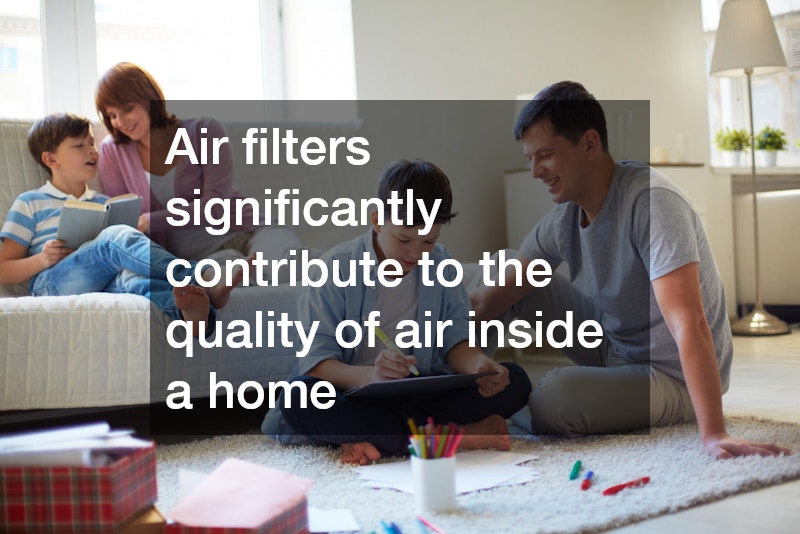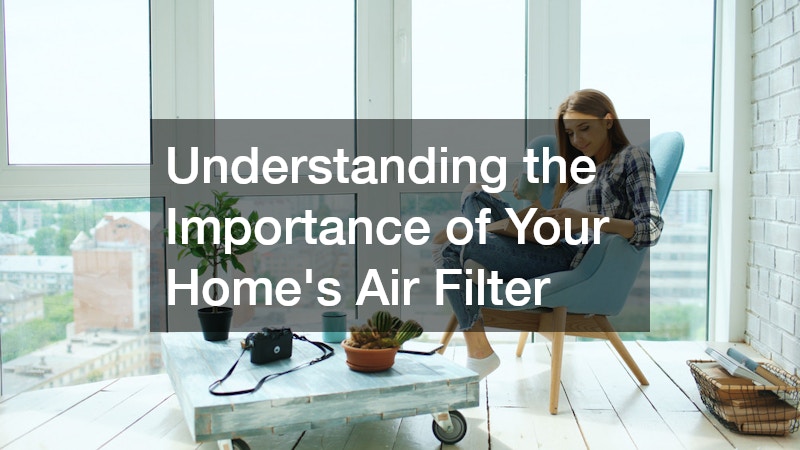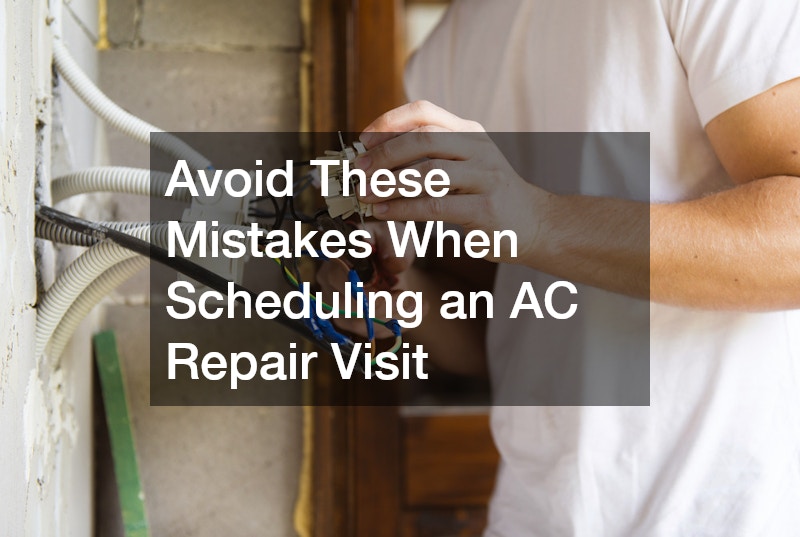Air filters play a crucial role in maintaining a healthy home environment. Learn common questions about the importance, maintenance, and impact on indoor air quality an air filter has.
Air Filters and How They Work
Air filters serve as a barrier against dust, pollen, and other particulates, helping to clean the air that circulates throughout your home. They are designed to trap unwanted particles while allowing clean air to flow freely, which is essential for a comfortable living environment.
The efficiency of an air filter is determined by its design, material, and filtration method, contributing directly to its ability to enhance indoor air quality.
In most residential HVAC systems, air filters are located within the airflow path, where they intercept particles that can cause issues. As air is drawn into the system, it passes through the air filter, which catches and holds onto the contaminants. This process ensures that only purified air is dispersed into your home, making it Critical for reducing allergens and pollutants that could lead to health problems.
It’s important to understand that not every air filter is created equal. The effectiveness of an air filter can vary greatly based on its type and construction. Some filters focus on capturing larger particles, while others are engineered to remove microscopic debris, highlighting the significance of selecting the right filter for your specific needs and circumstances.
The Importance of Changing Your Air Filter
Changing air filters at regular intervals is vital for ensuring optimal performance of your HVAC system and for improving indoor air quality. Over time, filters can become clogged with dirt and debris, which can restrict airflow and strain the system. This can lead to higher energy costs and may even cause premature wear on your HVAC equipment.
Additionally, a dirty air filter cannot effectively trap airborne pollutants, compromising the overall air quality in your home. This can result in increased levels of allergens and irritants in the indoor environment, potentially leading to health issues such as respiratory problems, allergies, and other related complications. Regularly changing your air filter helps mitigate these risks.
Establishing a routine for checking and replacing your air filter is a straightforward yet significant step in maintaining a healthy home. By setting reminders or monitoring filter performance, you can ensure that your HVAC system operates efficiently while promoting better air quality for you and your family.
Types of Air Filters
There are various types of air filters available, each with unique capabilities and features designed to address specific airborne contaminants. Some common types include fiberglass filters, pleated filters, HEPA filters, and electrostatic filters, each serving distinct filtration purposes. Understanding these options will help you make an informed choice.
Fiberglass filters are usually the most basic and least expensive option, primarily designed to catch larger particles. They often allow for a high airflow, but they may not be effective in capturing finer particles or allergens. On the other hand, pleated filters have a larger surface area, providing greater efficiency in trapping dust and allergens.
For those concerned about allergies or respiratory issues, HEPA filters are a top choice due to their ability to capture 99.97% of particles that are 0.3 microns or larger. They are particularly beneficial for individuals with asthma or sensitivity to dust and pollen. Understanding the different types of filters and their capabilities can lead to better decisions regarding your home’s air quality.
Impact on Indoor Air Quality
Air filters significantly contribute to the quality of air inside a home, reducing allergens and other pollutants that can affect respiratory health and overall well-being. By effectively capturing substances like pollen, pet dander, and mold spores, air filters help create a cleaner, fresher indoor environment. This is especially important for individuals with allergies, asthma, or other respiratory conditions.
Furthermore, many common household items can release volatile organic compounds (VOCs) into the air. By filtering out these harmful particles and chemicals, air filters play a crucial role in maintaining a healthy indoor atmosphere. A quality air filter can help mitigate the effects of these contaminants, leading to improved comfort and health for inhabitants.
The continuous circulation of filtered air can also contribute to an overall reduction in airborne bacteria and viruses, making your home environment more hygienic. This is particularly relevant during cold and flu seasons when airborne illnesses are more prevalent. Therefore, the importance of air filters extends beyond comfort to encompass significant health benefits.
Considerations When Choosing a Filter
Selecting the appropriate air filter involves considering factors such as MERV ratings, filter lifespan, and the specific needs of your household. The Minimum Efficiency Reporting Value (MERV) scale measures a filter’s ability to capture particles of various sizes. Understanding the MERV rating can help you choose an effective filter while balancing airflow and filtration efficiency.
Additionally, the filter’s lifespan is another critical factor. Some filters need replacement every month, while others can last up to six months or longer. Assessing your specific situation, including the level of airborne contaminants and household dynamics, can guide you in choosing a filter that meets your needs effectively.
Lastly, consider any unique requirements your household may have, such as pet hair or specific allergies. Products designed for hypoallergenic or specific contaminants may be more suitable depending on your circumstances. Taking the time to evaluate these factors ensures that you select the most appropriate air filter to enhance your indoor air quality.
Understanding the importance of your home’s air filter is essential for maintaining a healthy living environment. Regular maintenance and informed choices about filtration can significantly enhance your air quality and overall health. By implementing the insights shared in this article, you can take proactive steps toward improving the air you breathe and creating a more comfortable home.




